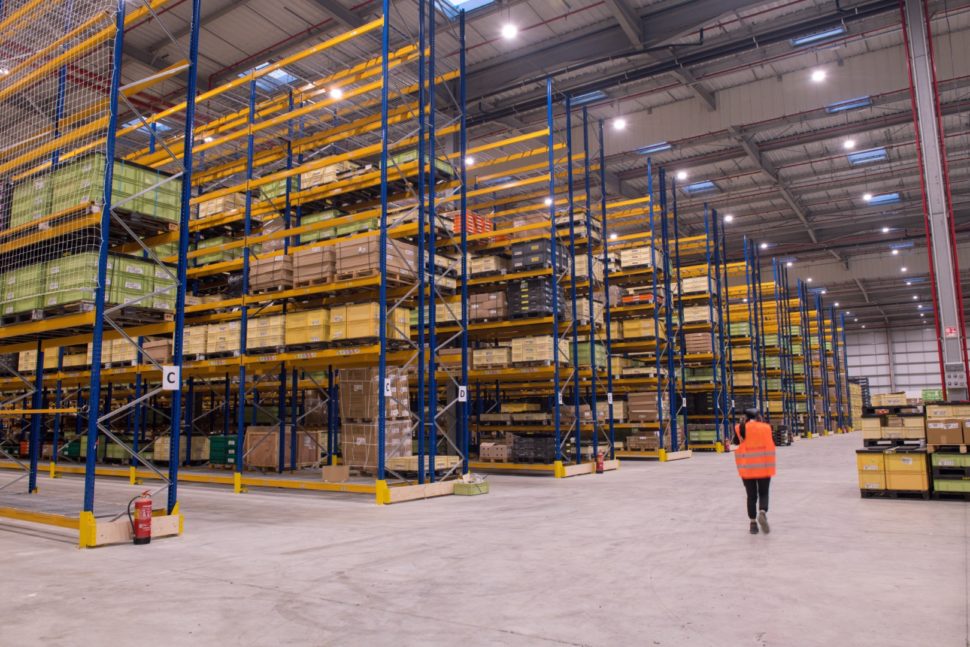What Does 3PL Mean? An Emerging Trend in Supply Chain

If you have just started an ecommerce business or you’re expanding your existing brick-and-mortar business by going online, you might have heard people suggesting you to look for third party logistics (3PL).
The term ‘3pl’ has become more like a trend these days. Every business is opting to have a third party logistics company because of its great profit returns and increased efficiency.
When it comes to managing logistics, smart businesses usually go for a cost-leadership strategy in which the cost is cut to the maximum level in order to attain a competitive advantage.
Since logistics is the behind-the-scenes operation of any business, it’s always better to cut every unnecessary overhead cost.
This is where the services of a 3PL company come in. So, what does 3PL mean? We’re here with an in-depth explanation of what a 3pl company does, how it impacts the businesses, and how a business can reap the fruits of a third party logistics company.

What Does a 3PL Mean?
A 3PL company means a third-party logistics company that provides logistics services to businesses in order to improve their order fulfillment services and to provide a competitive advantage in the market.
Since the rise of the ecommerce business, we can see a boom of order fulfillment companies because there was a great demand for such companies. These third-party logistics companies provide efficient transportation services that ultimately help businesses in making their operation cost-effective.
It All Got Started When…
Before the 1980s, only the multinational corporations (MNCs) were focusing on managing streamline logistics because of their global market. But as the world started to get connected, the need for having a quick supply chain management arised.
With the passage of time, the supply chain operations of businesses became more refined and effective because of the advanced technology in the logistics sector.
One of the biggest factors was the availability of the 3PL warehouse which allowed businesses to deliver their products and services to overseas customers.
A Quick Snapshot of 3PL Offerings
Having an outsourced 3PL warehouse helps businesses to become more competitive by reducing their operational cost. The 3PL service providers are equipped with advanced automated technologies that keep track of the inventory management.
Moreover, a 3PL service provider also eliminates most of the risks including the late deliveries and poor customer support. These order fulfillment centers also provide a great customer support that deals with all types of customer-related complaints.
They not only provide one-day shipping, but these 3PL companies also offer reverse logistics services. If a customer wants to return a product or a proper disposal of a product is needed, a 3PL company will make that happen.
Impact of 3PL on Startups and SMEs
Third party logistics also helps startups and SMEs (Small and Medium Enterprises) to focus on their core activities rather than deploying their human resource in managing inventory and handling shipping.● On Startups.
Startups usually have a very limited amount of finances to fuel the business operations. They need to focus on their core activities in order to increase the market growth.
One of the primary reasons for failure of many startups is the poor management of the core activities.
It has been observed that many startups get deviated from their path and invest in activities that can either be outsourced or postponed. These are some of the destructive decisions that bankrupts most of the startups.● On SMEs.
But with SMEs, things are quite different. These businesses are quite stable in the market and they mostly work on building their brand equity.
No doubt, the budget still remains the deciding factor here. SMEs need to outsource their logistics operations in order to increase their order fulfillment rate.
The supply chain management of SMEs needs to be made streamlined and it can never be achieved by creating an in-house supply chain infrastructure.
Keeping in mind the resource constraint and the fact that every market sector is saturated, SMEs must outsource their logistical operations to a 3PL company and focus on product development strategies to better position their brand.
Emerging Trends in Supply Chain
2020 was a strange year. During the pandemic, we saw a huge jump in the revenue of the ecommerce industry that increased by roughly 20% and that’s huge! Consumers were more inclined towards ordering their products online which put a great pressure on fast and secured deliveries across the globe.
With the increased global demand for faster logistics, customers expect businesses to deliver their products within almost no-time. Surprisingly, businesses are doing great in achieving that by bringing automation in most of their operations.
Moreover, one-day delivery projects by Amazon are already getting successful which means that the market does have enough potential to meet and cope up with such unrealistic demands.
Along with these advancements in the logistics industry, let’s see some of the most impactful emerging trends in the supply chain.1. Robotic Integration
At a warehouse, most of the operations are being handled by the robots to streamline the operations. The robots are becoming cheaper as well, which means that most of the 3PL companies will integrate robots in their logistical operations.2. Sustainability in Transport
Better fuel alternatives are being used as a means of primary fuel for the cruise ships that voyage while carrying thousands of tons of inventory. These fuel alternatives include liquified natural gas and other choices that leave very less carbon footprints. These sustainable goals help companies to sustain in the market because sustainability is the new future!3. Cross-Border Purchases
Consumers are much more comfortable in buying products from abroad which, again, puts a great pressure on 3PL companies to deliver the product at the customer’s doorstep. But things become quite difficult when it comes to logistics operations between countries that are geopolitically unstable.
But the countries are finally accepting the fact that in order to strengthen the economy, they need to sort this issue out by refining and redesigning their foreign trade policies. It can be done so by subsidizing companies to easily conduct logistical transactions between the nations. It will encourage more and more investors to invest in countries where the market gap exists.
Recent Posts
Watch our Podcast

THE ULTIMATE GUIDE TO FREIGHT SHIPPING THROUGH FLORIDA PORTS
When it comes to ocean freight shipping in Florida, there is a lot to know to ensure you follow the appropriate steps when shipping into and out of Florida Ports.
Just enter in your email address and receive your FREE E-Book in minutes!